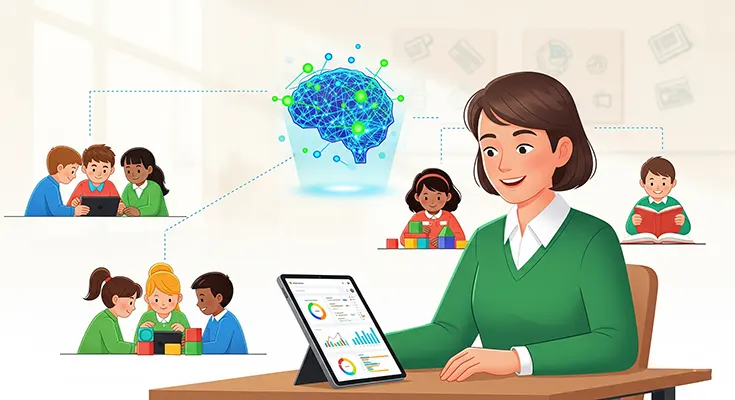The integration of artificial intelligence (AI) in education is transforming how teachers manage classrooms and support student behavior. AI tools for classroom management and behavioral support provide innovative solutions to enhance organization, communication, and personalized interventions. These technologies enable educators to maintain a positive learning environment while addressing individual student needs efficiently and effectively. Here’s a comprehensive look at how AI is shaping classroom management and behavior support.
Enhancing Classroom Management with AI
1. Automated Attendance and Monitoring
AI-powered attendance systems use facial recognition or smart ID scanning to automatically record student attendance. This reduces the time teachers spend on roll calls and minimizes errors. Additionally, some AI tools monitor classroom activity through video analytics to ensure engagement and identify disruptions early.
2. Intelligent Scheduling and Task Management
Managing assignments, deadlines, and lesson plans can be streamlined with AI-driven scheduling tools. These platforms help educators organize tasks, send reminders to students, and allocate resources efficiently, fostering a structured classroom environment.
3. Real-Time Analytics and Insights
AI applications analyze classroom interactions and student participation to provide actionable insights. Teachers receive real-time feedback on student engagement levels, allowing them to adjust instructional strategies dynamically for better learning outcomes.
Supporting Student Behavior with AI Tools
1. Behavior Tracking and Reporting
AI tools enable continuous observation and documentation of student behavior without subjective bias. Platforms can track behavioral patterns, flag concerns such as repeated disruptions, and generate comprehensive reports. These reports assist educators and parents in understanding behavior trends and planning interventions.
2. Personalized Behavioral Interventions
Using machine learning algorithms, some AI systems recommend tailored behavioral strategies based on individual student profiles. By analyzing factors such as past behavior, learning preferences, and emotional states, AI helps customize support plans that are more likely to succeed.
3. Chatbots for Social-Emotional Learning (SEL)
AI chatbots provide students with a confidential space to express feelings and practice emotional regulation techniques. These chatbots guide students through coping strategies, mindfulness exercises, and conflict resolution skills, complementing in-person counseling services.
4. Predictive Analytics for Early Intervention
AI can identify students at risk of behavioral issues by analyzing attendance, grades, and interaction data. Early detection allows educators and counselors to intervene proactively before problems escalate, promoting a safer and more supportive learning atmosphere.
Benefits of Using AI Tools in Classroom Management and Behavior Support
- Efficiency: Automating routine tasks frees up teachers’ time to focus on instruction and personalized student support.
- Objectivity: Data-driven insights reduce subjective judgment and help in fair behavioral assessments.
- Personalization: Customized interventions address unique student needs, improving engagement and outcomes.
- Proactive Support: Early identification of issues prevents escalation and fosters a positive classroom climate.
Considerations When Implementing AI in Classrooms
- Privacy and Data Security: Safeguarding student data is crucial. Institutions must comply with legal regulations and use secure platforms.
- Teacher Training: Educators need proper training to integrate AI tools effectively and interpret the data provided.
- Balancing Technology and Human Touch: While AI can assist greatly, human empathy and judgment remain essential in managing behavior and fostering relationships.
AI tools for classroom management and behavioral support are rapidly becoming valuable assets in education. By automating administrative tasks, providing real-time insights, and offering personalized behavioral interventions, these technologies empower educators to create more effective, inclusive, and supportive learning environments. As AI continues to evolve, its role in enhancing classroom experiences and student success is set to expand, making it a critical component of modern education.





